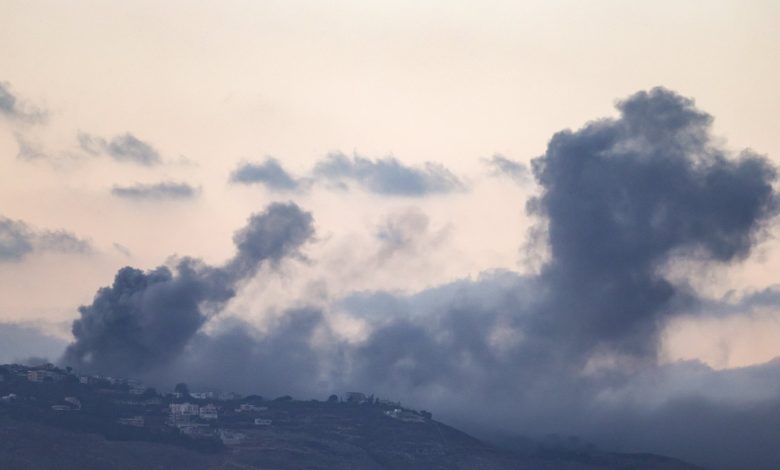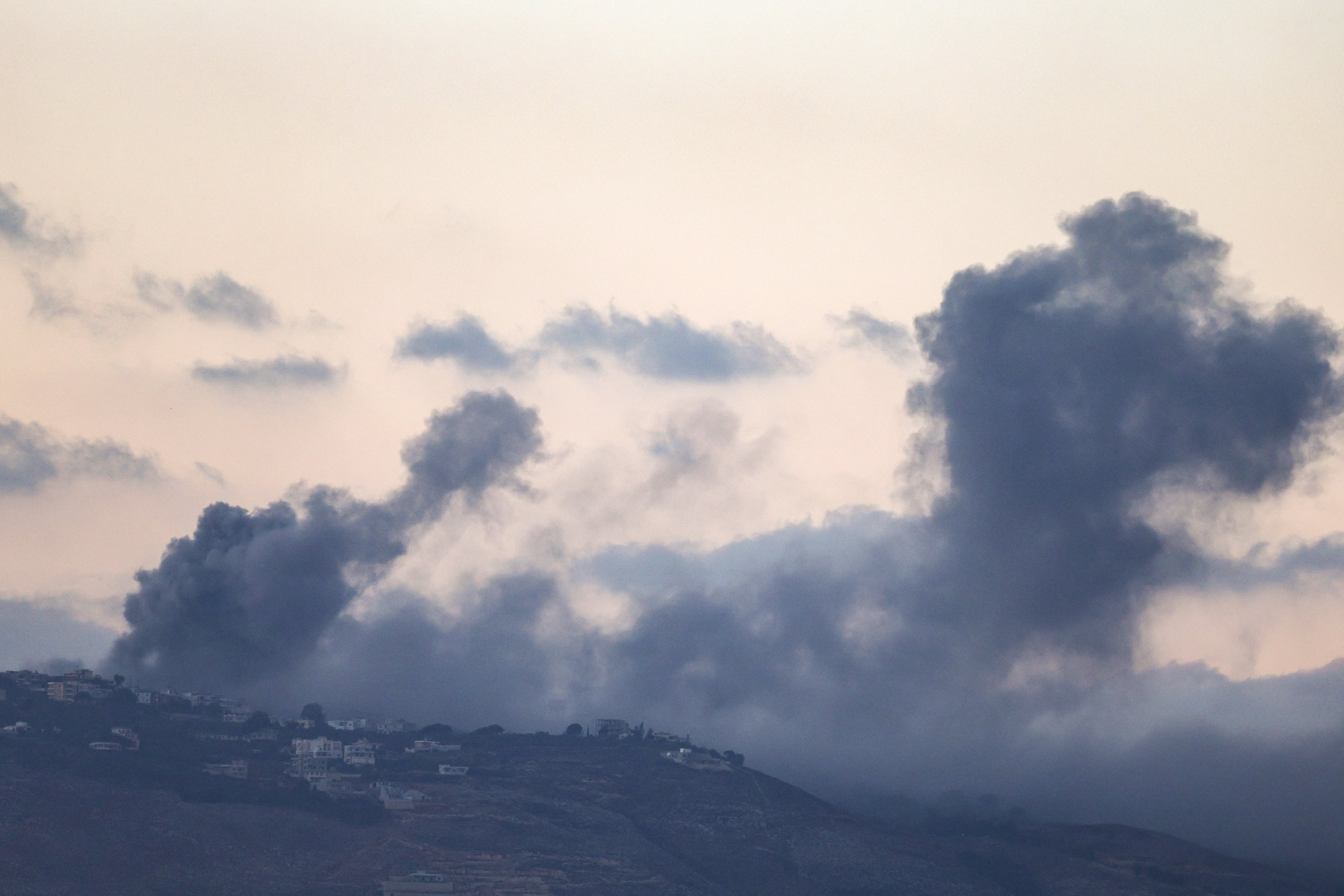Israel launches ‘limited’ operations against Lebanon

[ad_1]

The Israeli military launched ground attacks against Lebanon on Monday after shelling, disregarding global calls as it declared three communities in the north “closed military zone” while the Lebanese troops pulled back from the border.
State Department spokesman Matthew Miller said Israel informed the U.S. about the ground attacks, which he said were described as “limited operations focused on Hezbollah infrastructure near the border.”
There were no reports of direct clashes between Israeli troops and Hezbollah on Lebanese soil. The last time the two enemies engaged in ground combat was a monthlong war in 2006.
But a Western official, a diplomat in Cairo whose country is directly involved in de-escalation efforts, said an Israeli ground operation in Lebanon is “imminent.” The official, who spoke on condition of anonymity due to the sensitivity of the situation, said Israel had shared its plans with the U.S. and other Western allies, and conveyed the operation will “be limited.”
Israel and Hezbollah have exchanged fire almost every day since the war in Gaza began. Israel’s attacks displaced hundreds of thousands of people in Lebanon.
It was not clear if Israel had made a final decision on a broader ground operation in Lebanon.
The Israeli army on Monday evening also said that the army’s Northern Command approved tactical battle plans for a ground offensive into Lebanon.
It added that the army’s divisions in recent days carried out drills near the borders with Lebanon, simulating “various scenarios.”
In line with these developments, Defense Minister Yoav Gallant said earlier on Monday that the next stage of fighting against Lebanese group Hezbollah would “begin soon.”
Hezbollah said it is ready to confront any Israeli incursion into southern Lebanon.
“The battle is long, the options are open, and we will confront any Israeli ground invasion into Lebanon,” said Naim Qassem, Hezbollah’s deputy head, speaking for the group after its head Hassan Nasrallah was killed last week by Israel.
Since Sept. 23, Israel has launched massive airstrikes against what it calls Hezbollah targets across Lebanon, killing more than 960 people and injuring over 2,770 others, according to the Lebanese Health Ministry.
Several Hezbollah leaders have been killed in the assault, including Nasrallah.
Hezbollah and Israel have been engaged in cross-border warfare since the start of Israel’s war on Gaza, which has killed nearly 41,600 people, most of them women and children, following a cross-border attack by the Palestinian group Hamas last October.
The international community has warned that Israeli attacks in Lebanon could escalate the Gaza conflict into a wider regional war.
Early on Monday, Hezbollah vowed to keep fighting even after its longtime leader Hassan Nasrallah and other top officials were recently wiped out by Israeli strikes.
Israel’s order restricting entry and exit from the northern communities of Metula, Misgav Am and Kfar Giladi does not necessarily mean Israeli troops will invade Lebanon immediately. Areas can also be declared closed military zones if an imminent threat is detected.
Chris Coyle, a resident of northern Israel, said the army had erected gates and checkpoints throughout the region and positioned scores of tanks along the border in recent days. “They’re certainly getting ready to go in,” he said.
In the nearby Golan Heights, an Associated Press reporter heard the sounds of Israeli artillery fire and explosions in southern Lebanon. Israeli forces also fired flares into Lebanon.
Despite the heavy blow Hezbollah has suffered in recent weeks, acting leader Naim Kassem said in a televised statement that if Israel decides to launch a ground offensive, the group’s fighters are ready. He said the commanders killed have already been replaced.
Nasrallah’s longtime deputy, Kassem will remain in his acting position until the group’s leadership elects a replacement. The man widely expected to take over the top post is Hashem Safieddine, a cousin of Nasrallah who oversees Hezbollah’s political affairs.
Hezbollah has significantly increased its rocket attacks in the past week to several hundred daily, but most have been intercepted or fallen in open areas. Several people have been wounded in Israel. There have been no fatalities since two soldiers were killed near the border on Sept. 19.
But Hezbollah’s capabilities remain unclear. It’s possible Hezbollah is holding back to save resources for a bigger battle.
Some European countries began pulling their diplomats and citizens out of Lebanon on Monday. Germany, which has been calling on its citizens to leave Lebanon since October 2023, sent a military plane to evacuate diplomats’ relatives and others. Bulgaria sent a government jet to get the first group of its citizens out, with priority given to families with children and vulnerable groups.
In the past week, Israel has frequently targeted Beirut’s southern suburbs, where Hezbollah has a strong presence, including the massive strike Friday that killed Nasrallah. But it had not hit locations closer to the city center.
Monday’s strike killed three members of the Popular Front for the Liberation of Palestine, a small, leftist faction that has not been meaningfully involved in months of fighting between Israel and Hezbollah. Israel has not claimed the strike but is widely assumed to have carried it out.
The United States and its allies have called for a cease-fire, hoping to avoid further escalation that could draw in Iran and set off a wider war. But Israeli Prime Minister Benjamin Netanyahu has shown little interest.
France, which has close ties to Lebanon, has joined the United States in calling for a cease-fire. French Foreign Minister Jean-Noël Barrot, visiting Beirut Monday, urged Israel to refrain from a ground offensive.
Lebanese Prime Minister Najib Mikati, speaking after meeting with Barrot, said the country is committed to an immediate cease-fire followed by the deployment of Lebanese troops in the south, in keeping with a U.N. Security Council resolution that ended the 2006 war but was never fully implemented.
Hezbollah, which boasts tens of thousands of battle-hardened fighters and long-range missiles capable of hitting anywhere inside Israel, has long been seen as the most powerful militant group in the region and a key partner to Iran in both threatening and deterring Israel.
But Hezbollah has never faced an onslaught quite like this one, which began with a sophisticated attack on its pagers and walkie-talkies in mid-September that killed dozens of people and wounded around 3,000 – including many civilians.
[ad_2]
Source link

